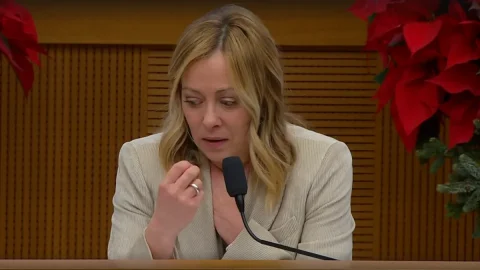The drop in interest rates on government bonds and the recovery of foreign purchases “demonstrate a return of confidence in the sustainability of the Italian public finances“. The greatest risks for our country, on the other hand, come from weak growth and uncertainty about the evolution of the political framework, which threatens reform action. Bank of Italy writes this in its new report on financial stability, which underlines how "the particularly high sovereign spreads that are recorded in several countries due to fears of the reversibility of the euro, if persistent, would depress growth". However, the estimates warn of the persistent risk of the reversibility of the euro and "a possible widening of the spread by 100 points", which according to Via Nazionale "would lower GDP growth by almost three tenths of a point in each of the next two years" .
BANKS: PROFITS WORSEN, BAD LOANS SURGER
The financial stability of the euro area is put at risk by the banks "which continue to be affected by the deterioration of asset quality, low profitability and the difficulty of raising risk capital, with repercussions on the supply of credit", writes again from Koch Palace. Furthermore, "the weak macroeconomic scenario will presumably continue to weigh on the interest margin of European banks and increase corporate insolvency rates, requiring large provisions against credit risks".
Via Nazionale, "this prospect is supported by the progressive worsening of expectations on bank profits: financial analysts currently estimate that a recovery in profits compared to last year's levels will only start from 2014".
As for the “persistence of a high cost of risk capital”, this is a factor that “discourages further operations to strengthen the capital base; these operations, which in past years have been the main way banks have reduced their financial leverage (in the form, in several foreign countries, of large injections of public capital), could allow intermediaries to limit the repercussions on the supply of loans due to a deterioration in the creditworthiness of customers".
The flow of new non-performing loans as a ratio of business loans exceeded 3% at the beginning of this year and is at its highest level in about 15 years (1997). The impact of the recession has led the Bank of Italy to draw a curve of new non-performing loans on businesses in 2013 that is significantly higher than the one outlined six months ago. Via Nazionale estimates that the peak will be reached in mid-2013. The situation of households, on the other hand, is stable: “There are no tensions on household credit” explains the deputy general manager Fabio Panetta at the presentation of the report.
REAL ESTATE MARKET, NO BUBBLE RISK
The Italian real estate market continues to show signs of weakness. And house prices are expected to fall further in the coming months. In the first six months of 2012, "the number of home sales underwent a clear decline - Bankitalia writes -, halving compared to the peaks reached in 2006". House prices, "almost unchanged in the last three years, have fallen slightly since the end of last year".
In Italy “the real estate market – reads the Report – is showing weakness: since the end of last year the decline in sales has been accompanied by a moderate reduction in house prices; these trends reflect the contraction in households' real disposable income and tensions in credit supply conditions”.
Therefore “there are no indications of overvaluation of the properties. The decline in prices should continue in the coming months; it could be prolonged should the prospects for economic recovery fade away. Any effects on the quality of bank assets would be modest”.





